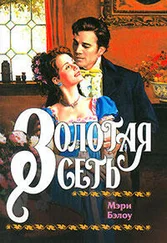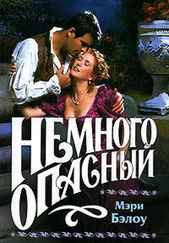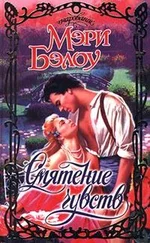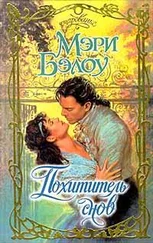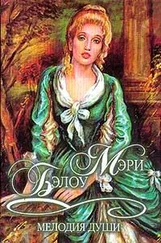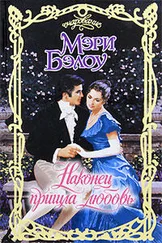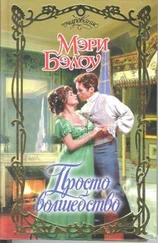“Jessie,” he said. “That is not—”
She set a finger across his lips.
“And it is why I married you,” she told him. “Duty and—”
“Love?” he said.
Ah, but she did not want to load that sense of guilt upon his shoulders. “Affection,” she said. “You feel some for me. I know you do. And I feel some for you. It is a start, Gabriel. It is a very good start.”
“Yes,” he said, and they gazed at each other.
What was the difference, she wondered, between affection and love? Or between desire and affection—and love? What did she feel for her husband? What did he feel for her? But did it matter by what name it was labeled? It just was .
His hands came to her hips then and his mouth returned to hers. But open and hungry this time. And hot. Oh, so hot. He was hot. Whatever that meant. Words again. Words could be so stupid. Stupidly inadequate. So could thoughts.
Begone, then, thoughts.
His mouth was devouring hers. His tongue was deep in her mouth and sending trails of tingling heat right down inside her to her toes, though it concentrated about her womanly parts, those she had discovered on the bed in the next room during the past few days and nights.
But mouth and tongue were not sufficient. Not by half. Oh—
He was raising her evening gown, none too gently, and he lifted her above the table for a moment so that he could raise it up and, after he had dealt quickly with the buttons at the back, all the way off her body to be tossed to the floor. Her stays followed in short order. And then her shift. He did not touch her evening slippers or her silk stockings and the garters that held them up. He shrugged out of his evening coat, with a bit of help from her, and his waistcoat and neckcloth. He tugged at his shirt and pulled it up and off his head to join everything else on the floor. He dealt with the buttons at his waist but did not remove his breeches. His mouth ravished hers almost the whole time. And then she realized—oh goodness!
He was not going to take the time to carry her into the bedchamber. He was going to—right here, right now.
His hands came to her naked hips again and pulled her to the edge of the table. She wrapped her legs about him. And he thrust hard into her.
The table squeaked as he worked in her. The sound got all caught up with the eroticism of the moment—that and the rhythmic sound of the wetness of their coupling.
It was unbearably painful. Unbearably sweet. Unbearably—
Her forehead came to rest on his shoulder as she shuddered and then shuddered again and again before floating downward from . . . Well, there went the stupidity of words again. There never were any for the truly important things. She floated downward.
He was still pulsing and throbbing inside her though he was still and she knew he was finished.
And he was hot . There was really no other word that came close to describing what he was as a lover.
“I am so sorry, Jessie,” he said. He was still inside her. He sounded breathless, as well he ought.
She raised her head and looked into his dark blue eyes—they were heavy lidded with the aftermath of passion.
“If you really mean that, Gabriel,” she said, “I am leaving you in the morning and going home to Archer House.”
He smiled slowly at her.
Oh, that smile.
Twenty-one
The table in the private dining room Gabriel had reserved at his hotel had been set for ten. He and Jessica were down first, but they were soon joined by Riverdale and Netherby and their wives. The Marquess of Dorchester arrived next with Baron Molenor and Viscount Dirkson. Bertie Vickers came on their heels. Gabriel was rather touched to see him.
“I was not invited, Gabe,” he said, shaking hands with him and nodding first to Jessica and then to everyone else. “But m’father found out about it from Netherby, and I told him I was coming, invitation or not. I was offended by that gold waistcoat of the younger Rochford a few weeks ago, and I was offended by his gold domino and mask last evening. Sequins on a man, for the love of God! The father , on the other hand—well, talk about smiling villains. There is a Shakespeare quote about them somewhere. Can’t remember where. Did I understand correctly, Gabe? Did the man commit crimes and then try to blame them upon you? Would he have sent you to the gallows in his place? Would he still if he could get away with it? We have to do something. And if there is something I can do to help . . . Well, it is why I came.”
“I am glad you did,” Gabriel assured him.
No one else came, though all the younger men of the Westcott family and a number of the women had apparently wanted to. But they had been persuaded to remain at home. So ten settings were exactly enough.
The English aristocracy was a remarkable breed, Gabriel discovered over the next half hour while they partook of a sumptuous breakfast—the hotel cooks and kitchen staff had probably been up half the night preparing it, he guessed with a twinge of guilt. They conversed easily and with apparent interest on a number of topics, which ranged from politics to foreign affairs, from the newest books and pamphlets to the opera, from the state of the crops on their various estates to—yes—the weather. Anyone listening in, as the manager and waiters no doubt did as they carried in an endless supply of food and removed plates and dishes and poured coffee, would have assumed that this was a mere social gathering.
It was not until the table had been cleared of all except their coffee cups and the cream and sugar and a large pot of fresh coffee that they got down to business.
“First things first,” Riverdale said. “Those papers are locked up in the safe in your study, Netherby?”
“I can safely report,” Netherby said, “that they are quite perfectly safe in the safe.”
Bertie smirked and Dirkson chuckled.
“And Miss Beck and the groom from Brierley—Ned Higgins, I believe?—are prepared to testify in a court of law if necessary, Lyndale?” Riverdale asked. “And Mrs. Clark?”
“I would not allow Mrs. Clark to be called in person as a witness,” Gabriel said. “Her letter, witnessed by her father and her husband, will have to do.”
“Yes,” Jessica said. “I agree.”
“Oh,” Anna said. “And so do I. One knows very well what would happen if she were dragged into court. Soon everything that happened would be her fault.”
Netherby’s well-manicured, beringed hand covered hers briefly on the table, Gabriel noticed.
“Mrs. Clark’s letter—in her own handwriting, I assume, Lyndale?” the Marquess of Dorchester began, and paused, eyebrows raised.
Gabriel nodded.
“And witnessed by her male relatives,” Dorchester continued, “is surely proof enough first that Lyndale did not ravish her or father her child, and second that Manley Rochford did—by overpowering her and proceeding without her consent. You are safe on that charge. On the second you are safe too since you have an alibi, to which two witnesses are prepared to testify. But—is there any proof that Manley Rochford committed the murder?”
“It was almost certainly either Manley or Philip Rochford, my cousin,” Gabriel said. “He died seven years ago. Hence my title and my return to England. His version of events died with him, though both he and Manley swore to my uncle that they had seen me commit the crime. Both joined him in urging me to flee. Perhaps they were afraid their story would not hold up in court. But I am afraid probability would not bring a conviction in court. There were no other witnesses that I know of and therefore there is no proof beyond all reasonable doubt that one or the other of them shot Orson Ginsberg in the back.”
Читать дальше

